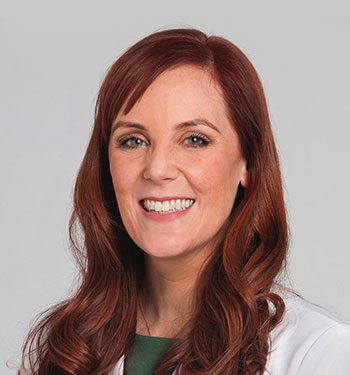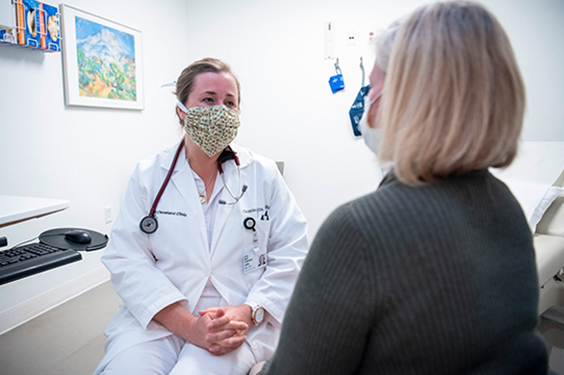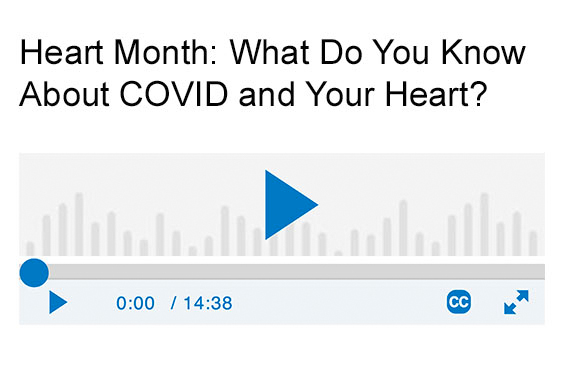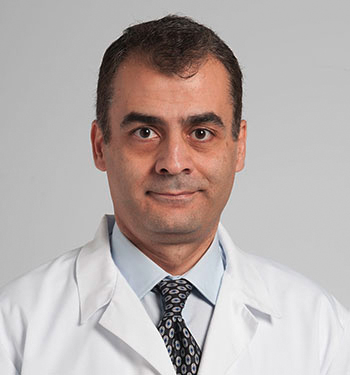Your heart matters.
It’s important to manage cardiac conditions during the pandemic.
COVID-19 and your heart
Those with heart disease — a term used to encompass a range of disorders that affect the heart — have an increased risk of developing more severe symptoms and issues if they contract COVID-19.
Are you at risk?
Most people have heard of common heart attack risk factors such as family history, race, smoking, diabetes, high blood pressure, obesity and high cholesterol, but there are heart attack risk factors that many don’t know about.
Lesser-known heart attack culprits include:
- Intense emotions. Studies have shown that both intense anger and grief can occasionally trigger a heart attack.
- Sudden exertion. A bout of sudden, strenuous physical activity can lead to heart attack in people who are not physically fit.
- Extreme cold. Cold temperatures cause the arteries to constrict, which can cause a sudden increase in blood pressure.
- Eating a heavy meal. A heavy meal can occasionally trigger a heart attack. No one knows exactly why this happens, but eating does divert blood away from the heart and pushes it toward the GI tract, which can be problematic for susceptible individuals.
On top of dealing with the stress of the pandemic, visiting a cardiologist can be stressful — especially when an individual is concerned about their health and unsure about their future. It may feel like things are out of your control, but there are some proactive steps you can take to prepare for and ensure the success of your appointment:
- Write down your symptoms, when they occur and what makes them worse or better.
- List your cardiac risk factors. Family history is especially important.
- Compile a list of your medications — include prescription medications and over-the-counter medications, including any vitamins and supplements.
- Include a list of medications you may have tried in the past for your condition and had an allergic reaction or poor response to.
- Write down any specific questions you have, and include the most important reason you are seeing your cardiologist (specific symptom, second opinion, etc.)
Caring for your heart
Your primary care physician can refer you to a cardiology specialist if there are concerns or risk factors. To pinpoint any issues associated with your heart, your cardiologist can order a stress test (to see how your heart works during physical activity), heart scan (to look for calcium issues), or blood tests (to check for concerning issues like high cholesterol).
Nationally recognized
For the 26th consecutive year, Cleveland Clinic’s heart program is ranked No. 1 in the nation by U.S. News & World Report. Since 1995, no hospital in the country has ranked higher in cardiac care. But there’s another nationally ranked heart program in town. And it’s right in your neighborhood. U.S. News & World Report ranks Cleveland Clinic Fairview Hospital No. 48 in the country for cardiology and heart surgery.
Cleveland Clinic is here to care for you
Although COVID-19 is still around and still contagious, Cleveland Clinic has taken steps to allow you to return safely for your healthcare needs — including cardiac and emergency care.
- Practice physical distancing and limit the number of people in one area.
- Screen everyone for COVID-19 symptoms.
- Require a face mask for everyone at all Cleveland Clinic locations.
- Disinfect surfaces frequently.
Roy Miler, MD
Lorem ipsum dolor sit amet, consectetur adipiscing elit, sed do eiusmod tempor incididunt ut labore e.
Lorem ipsum dolor sit amet, consectetur adipiscing elit, sed do eiusmod tempor incididunt ut labore et
Dolore magna aliqua. Quis ipsum suspendisse ultrices gravida. Risus commodo viverra maecenas accumsan lacus vel facilisis. Lorem ipsum dolor sit amet, consectetur adipiscing elit.
Roy Miler, MD
Lorem ipsum dolor sit amet, consectetur adipiscing elit, sed do eiusmod tempor incididunt ut labore e.
Lorem ipsum dolor sit amet, consectetur adipiscing elit, sed do eiusmod tempor incididunt ut labore et
Dolore magna aliqua. Quis ipsum suspendisse ultrices gravida. Risus commodo viverra maecenas accumsan lacus vel facilisis. Lorem ipsum dolor sit amet, consectetur adipiscing elit.
Nullam in enim ullamcorper, efficitur dui a, fermentum erat. Cras in massa eget nisi imperdiet hendrerit vel interdum tellus. Ut pellentesque neque ipsum, quis fringilla nisl volutpat vel. Cras et luctus ipsum, quis blandit ligula. Morbi elementum tincidunt nibh eu lobortis. Ut consectetur ut libero sed sagittis.
Lorem ipsum dolor sit amet, consectetur adipiscing elit, sed do eiusmod tempor incididunt ut labore et
Dolore magna aliqua. Quis ipsum suspendisse ultrices gravida. Risus commodo viverra maecenas accumsan lacus vel facilisis. Lorem ipsum dolor sit amet, consectetur adipiscing elit.
Connect with Cleveland Clinic now.
- Cleveland Clinic heart, vascular and thoracic services are available on the West Side at:
- Avon Hospital at Richard E. Jacobs Campus -- 440.695.5000
- Cleveland Clinic main campus -- 216.444.6697
- Fairview Hospital -- 216.476.7000
- Lutheran Hospital -- 216.696.4300
- Elyria Family Health Center -- 440.204.7400
- Lakewood Family Health Center -- 216.237.5500
- Lorain Family Health and Surgery Center -- 440.204.7400
- Richard E. Jacobs Health Center (Avon) -- 440.695.4000
- West Valley Medical Building (Fairview Park) -- 440.333.8600
- Westlake Medical Campus -- 440.250.5760
- To talk with a Heart Nurse, call 866.289.6911 or email us.









